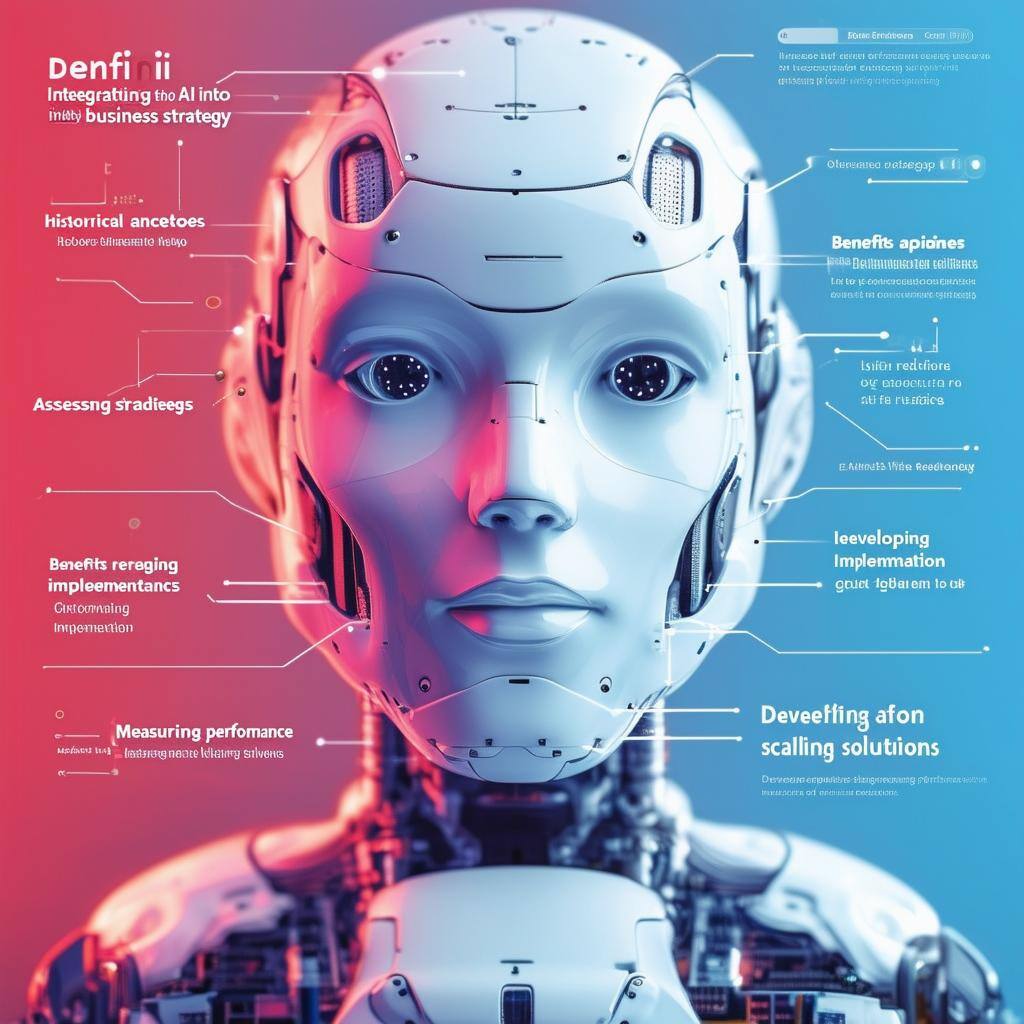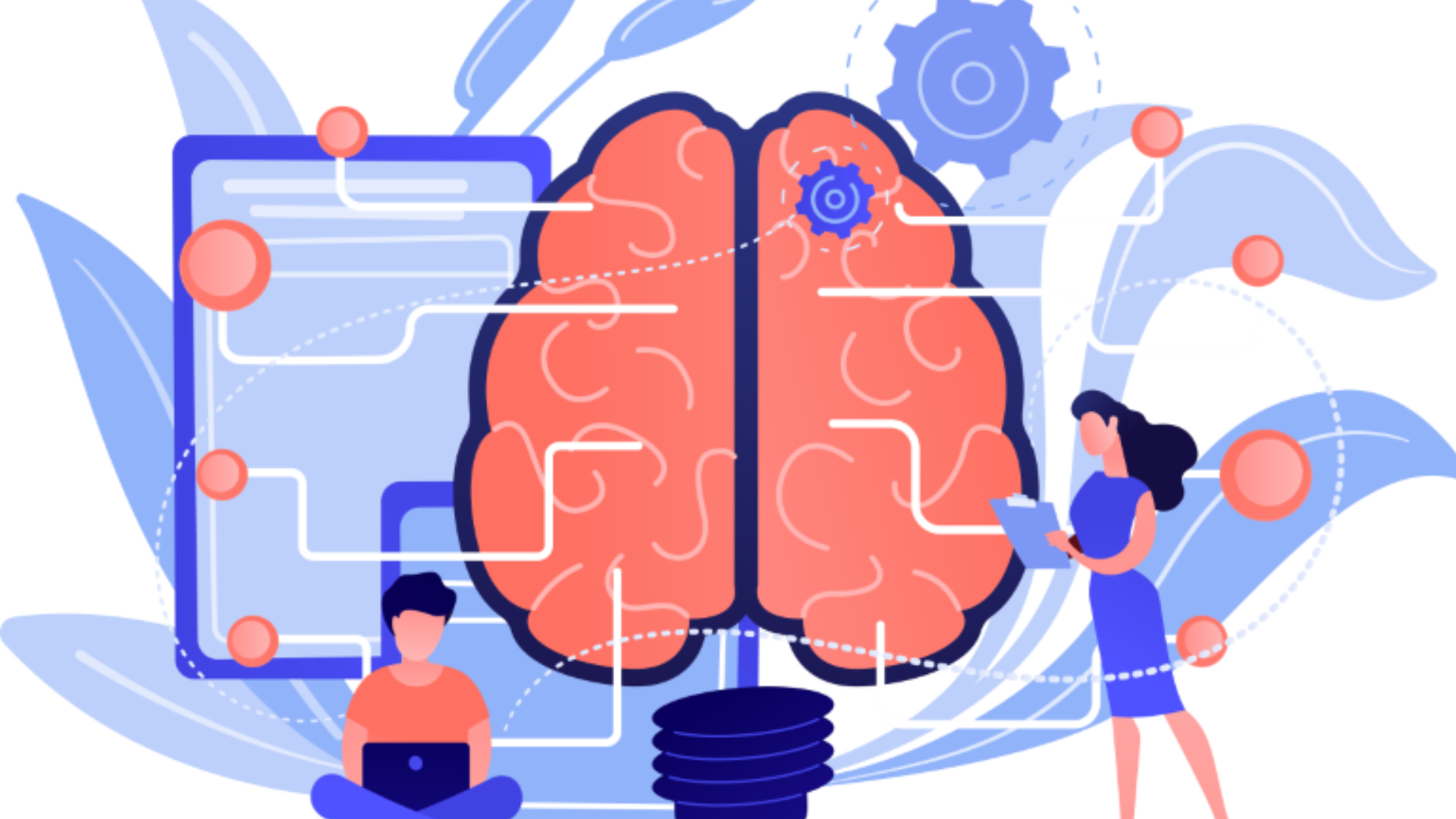5 min read
How AI Is Silently Reshaping Your Business (And What You Can Do About It)
 Chelsea Zimmerman
:
Aug 30, 2024 6:15:00 AM
Chelsea Zimmerman
:
Aug 30, 2024 6:15:00 AM
Artificial Intelligence (AI) isn’t just a futuristic concept confined to sci-fi movies—it’s here, integrated into our daily operations, often without us realizing it. As a business leader, the question is not whether AI is impacting your business, but how. Your competitors are likely already leveraging AI to gain an edge, and if you're not aware of it, AI may be silently reshaping your business in ways you haven't anticipated. So, what can you do about it? Let’s explore how AI is making its mark across various business functions and what steps you can take to ensure you’re on the right side of this technological evolution.
The Invisible Hand of AI in Today’s Business Landscape
Understanding AI’s Role in Business
Artificial Intelligence, at its core, refers to machines that can perform tasks that typically require human intelligence. This includes everything from machine learning, where systems improve from experience to natural language processing (NLP), where machines understand and interpret human language. AI’s applications are vast and varied, from autonomous vehicles to personalized online shopping experiences.
However, many executives don’t realize that AI is already embedded in many of the tools and services their businesses use daily. Customer Relationship Management (CRM) systems, for instance, are increasingly utilizing AI to help sales teams identify the most promising leads. Similarly, email platforms use AI to filter out spam and suggest responses, making everyday tasks more efficient.
The Pervasive Presence of AI
AI's integration into everyday business tools makes it both powerful and easy to overlook. A recent survey found that nearly 80% of SMBs use at least one AI-driven service, often without recognizing it. This stealthy infiltration of AI into business operations is a double-edged sword—it offers significant benefits but also carries risks if you’re unaware of how it’s being used or not taking full advantage of its capabilities.
Consider Netflix, which revolutionized its recommendation engine using AI algorithms. By analyzing viewer behavior—what shows are watched, skipped, or rewatched—Netflix's AI suggests content tailored to individual tastes, significantly improving user engagement and retention. This same technology is used in many business applications to predict customer preferences and improve marketing strategies, often without explicit knowledge from the businesses themselves.
AI’s Impact Across Key Business Functions
AI is not just a back-office tool; it’s transforming key business functions across the board. Let’s take a closer look at how AI is reshaping critical areas of your business.
Marketing and Customer Engagement
Personalization and Targeting
One of the most visible applications of AI is in marketing. AI algorithms analyze vast amounts of data to deliver highly personalized marketing messages, ensuring the right message reaches the right person at the right time. This not only improves customer engagement but also significantly enhances ROI.
Take Amazon, for instance. Amazon uses AI to recommend products based on previous searches, browsing history, and purchase patterns. These personalized recommendations drive a substantial portion of Amazon's revenue, demonstrating how effectively AI can be used to boost sales and customer satisfaction.
Customer Insights
AI is also transforming how companies gather and analyze customer data. Machine learning models can sift through vast amounts of data to uncover hidden patterns and trends, providing deeper insights into customer behavior. For example, Starbucks uses AI to personalize its marketing efforts, sending targeted offers and promotions to customers based on their purchase history and preferences. This strategy has significantly increased customer loyalty and spending.
Operations and Supply Chain Management
Inventory Optimization
AI’s role in supply chain management is equally transformative. Companies like Walmart are using AI to predict inventory needs accurately, reducing waste and ensuring products are available when and where they’re needed. By analyzing historical sales data and external factors such as weather patterns, AI can forecast demand with greater precision, allowing businesses to optimize their inventory levels.
Process Automation
AI is also automating repetitive tasks, freeing up human resources for more strategic activities. This is evident in logistics companies like DHL, which uses AI for route optimization and warehouse automation. AI-driven robots in warehouses can sort and transport goods, reducing the time and cost associated with manual labor.
Finance and Risk Management
Fraud Detection
In finance, AI has proven invaluable for enhancing security and managing risk. AI algorithms analyze transactional data in real time to detect unusual patterns that may indicate fraud. JPMorgan Chase, for example, uses AI for its fraud detection systems, which can identify and block fraudulent transactions faster than traditional methods.
Predictive Analytics
AI’s predictive capabilities are also being leveraged for financial forecasting and risk management. Companies like American Express use AI to analyze spending patterns and predict credit card defaults, allowing them to manage risk more effectively and make more informed lending decisions.
Human Resources and Talent Management
Talent Acquisition
AI-driven tools are also changing how companies recruit and retain talent. AI algorithms can screen resumes and identify top candidates more efficiently than manual processes. Unilever, for instance, uses AI-powered software to conduct initial assessments of job applicants, significantly reducing the time and cost of hiring.
Employee Engagement
AI applications that analyze employee sentiment and behavior are helping companies improve engagement strategies. IBM uses its AI platform, Watson, to analyze employee feedback and identify potential issues, enabling proactive management interventions to improve employee satisfaction and retention.
The Hidden Costs of Ignoring AI
Lost Competitive Edge
Failing to adopt AI can result in a significant loss of competitive edge. Companies that leverage AI to innovate and streamline operations are often more agile, responsive, and capable of scaling quickly compared to those that do not. Blockbuster’s reluctance to embrace new technologies, for instance, led to its downfall while Netflix thrived by integrating AI-driven personalization into its platform.
Operational Inefficiencies
By not utilizing AI, businesses miss opportunities to optimize operations, reduce costs, and enhance productivity. AI can automate mundane tasks, allowing employees to focus on more strategic initiatives. Companies that fail to recognize this potential risk are falling behind more tech-savvy competitors.
Customer Experience
AI is a critical tool for enhancing customer experience. Businesses that do not use AI to personalize customer interactions and anticipate needs may provide subpar experiences compared to competitors using AI to enhance personalization and service. This can lead to lost customers and reduced market share.
Steps to Leverage AI Effectively in Your Business
Start with Your Marketing
Ths is one of the easiest places to start because you don't need any monetary investment. Utilizing tools like ChatGPT, you can save dozens of hours a month on blog post writing, email campaign copy, and other written sales collateral. Here's a great video that explains exactly how you should be using ChatGPT right now to save time and money in your business while still connecting with your audience. We've actually been using this exact method at TotalCare IT and it has really boosted our creativity.
Overcoming Common Challenges in AI Adoption
Data Privacy and Security Concerns
Data privacy and security are major concerns when adopting AI. The rule of thumb is when using AI engines like ChatGPT, don't feed it your intellectual property or any sensitive information. You don't want that information being aggregated into the engine. For other AI uses such as tech tools, it’s essential to ensure that your AI applications comply with data protection regulations and implement robust security measures to protect sensitive information.
Integration with Existing Systems
Integrating AI with legacy systems can be challenging, but it is not insurmountable. Start by identifying areas where AI can provide the most value and work on integrating it incrementally. This step-by-step approach can help minimize disruptions and ensure a smoother transition.
Managing Change and Employee Resistance
Change management is a critical component of AI adoption. Employees may resist AI due to fear of job displacement or uncertainty about new technologies. Communicate openly about the benefits of AI, provide training and support, and involve employees in the AI implementation process to reduce resistance and foster a positive attitude towards change. Our team here at TotalCare IT sees AI as a tool to help us do our jobs faster, which allows us to better serve our clients.
Artificial Intelligence is already reshaping your business—whether you realize it or not. By understanding AI's pervasive presence and strategic applications, you can leverage it to your advantage rather than letting it silently dictate the future of your operations. Don’t wait to be left behind; take charge of your AI strategy today to ensure your business thrives in the digital era.

AI vs. Human Intelligence: What You Need to Know Right Now!
In today’s fast-moving world, understanding the differences between Artificial Intelligence (AI) and human intelligence is key to staying ahead in...

The Ultimate Guide to Integrating AI into Your Business Strategy
Artificial Intelligence (AI) has swiftly transitioned from a futuristic concept to a transformative force reshaping industries across the globe. For...

